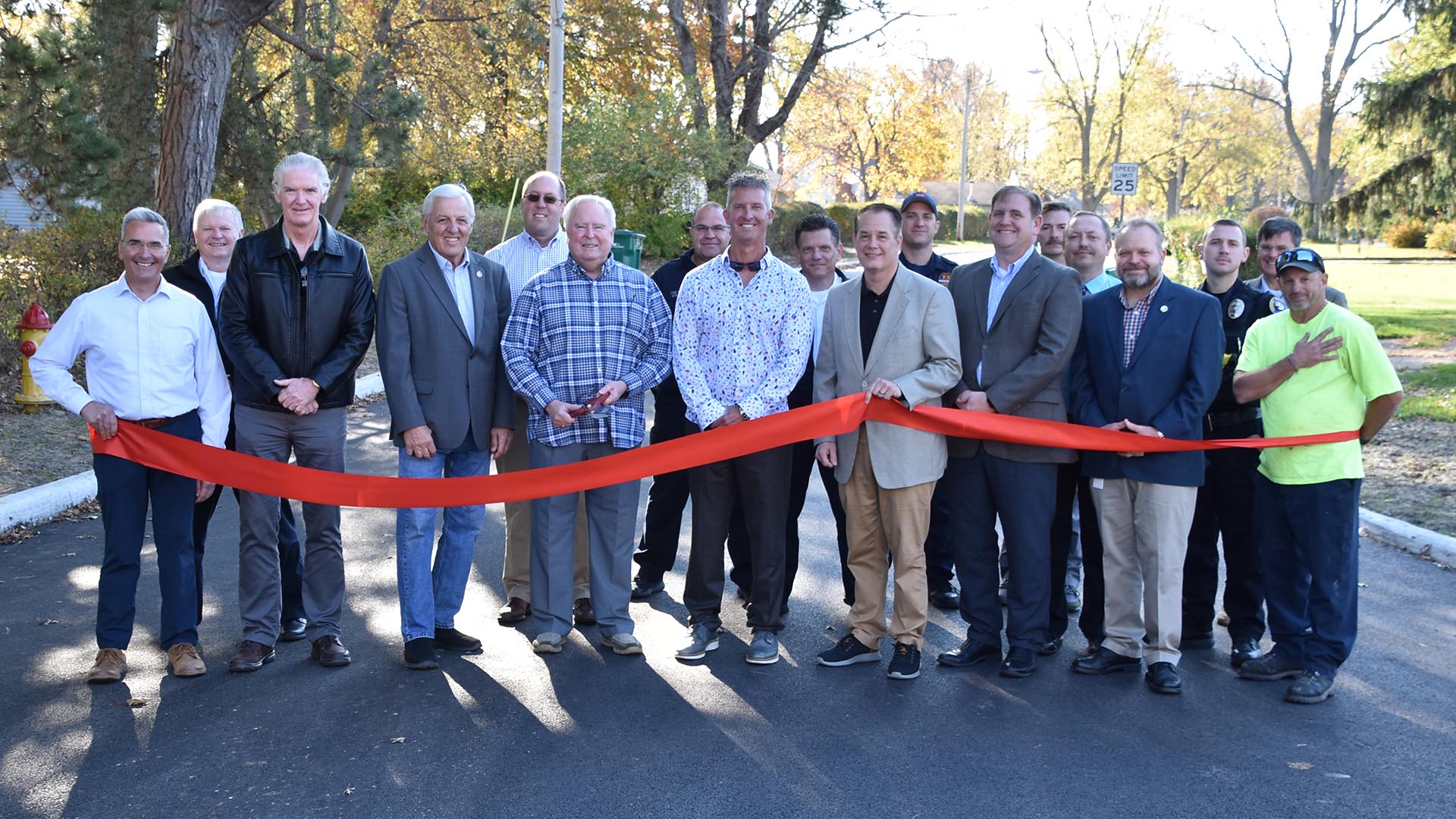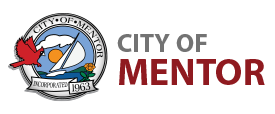
The City of Mentor recently completed the ambitious Headlands Area Road Reconstruction Project, which replaced over 7 miles of roadway on 11 city streets. The effort was finalized with the paving of Brooksdale Road which was marked with a ribbon cutting by members of City Council and other city officials.
“We’re thrilled at the way it turned out,” says Mentor City Manager Kenneth J. Filipiak, “ We’ve had great cooperation from residents throughout the project who were excited to see the improvements. We think it’s going to positively impact home values and fulfill our commitment to the residents of this community.”
The project addressed streets that lie to the west of Corduroy Road in an area that was first settled in the early 1900s. Originally simple gravel roads, these were paved as late as the 1950s with some drainage improvements taking place in the 1970s.
In 2016, City Council committed to address the condition of the road infrastructure with the full understanding that a major investment was required to bring these streets up to current standards. At the time, the project was anticipated to take 10 years at a cost of over $20 million.
“With the support of Council, we were able to secure funding to redo these roads in the Headlands area,” says Ward-4 Councilperson John Krueger, “The roads were in poor shape, the curbs were in poor shape, and it’s all new now…I’m very happy we were able to get this done.”
Seven streets were originally targeted for rehabilitation that included Marigold, Orchard, Belle Meadow, Wake Robin, Glen Lodge, Brooksdale, and Lake Overlook, with priority given to the streets in the worst condition. The project was expanded to include Forest, Maiden, Garden, and Woodridge.
This transformative project broke ground in 2017 on Marigold Road with the full-depth reconstruction of the road base, replacement of curbs and driveway aprons, as well as new water and sewer lines, and sanitary connections. The scope of the project was adapted in 2019 to take advantage of new technologies. Storm and sewer lines that were in adequate condition were relined instead of replaced.
In all, the entire project was completed in six years at a cost of about $13 million. When projects of this scope are undertaken, homeowners are typically assessed for a portion of the cost on their property taxes. In this instance, 100% of the project was paid for through public funding.
“We were very fortunate to have about 40% of it paid for through grants and our partnership with the Lake County Department of Utilities,” says Filipiak. Outside funding included $2.635 million in grants and $900,000 in 0% interest loans from the Ohio Public Works Commission, $1.72 million in direct contribution and grant funding from the Lake County Department of Utilities, and $305,000 in Community Development Block Grant funding. City funds paid the rest.”
“We appreciate the investment by the Ohio Public Works Commission as well as the county Utilities Department and the county commissioners who were eager to be a part of this project,” said Filipiak.
“Without the support of the Ohio Public Works Commission, projects like this would still be years away from completion,” added City Engineer Dave Swiger.
Simply resurfacing a street can take a matter of a days or weeks to complete. Reconstructing a street with utility upgrades can take up to a year, and the impact it has on residents is considerable. Over 1,000 property owners directly benefited from these improvements.
“We appreciate the cooperation we’ve gotten from the residents,” adds Filipiak, “I think it’s a good example of neighborhoods working with local government to make things better for everyone. We’re proud to have completed a project that is going to hold up for decades.”
